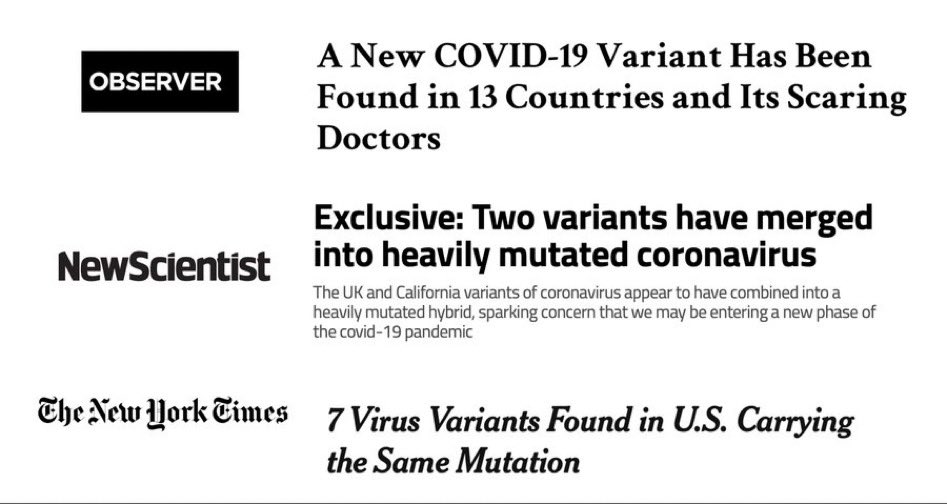
I want to bring this up. I’m sure by now you have seen those sensationalist headlines about variants merging and “heavily mutated hybrids” and what not. Guess what I want you to do right now? Ignore them. Yes, ignore them. Know why? Things like this are just mass hysteria. 

The ones we need to be paying attention to are B.1.1.7, B.1.351 and P.1 because these are the only known SARS-CoV-2 variants that HAVE been shown to possess any evidence of functional significance or biological properties that make them a cause for concern to date. The rest?
Forget them. I read one article and I quote: “the recombination event may have occurred within the sample after it was taken from the infected person, not while it was inside their body. In which case it is an accidental laboratory artefact, not a wild virus.” Makes my head hurt.
Genetic recombination is literately just another mechanism a virus may utilize to adapt. There is also little evidence that recombination is favoured by natural selection to create advantageous genotypes or purge deleterious mutations. I don’t mean to sound dismissive but, it’s
important to pay attention to the pertinent variants. You’re going to find variants will pop up all over, it doesn’t mean that every single one is a cause for concern. Most just die out because they’re just not strong enough. Another article I read with an attention grabbing
headline says a couple of paragraphs down, “the hybrid variants don’t necessarily spell increased danger BUT-.” Don’t stress yourselves out. They get their clicks and then hope you don’t read past the headline. If they become a concern you’ll find out from most scientists first.
• • •
Missing some Tweet in this thread? You can try to
force a refresh







